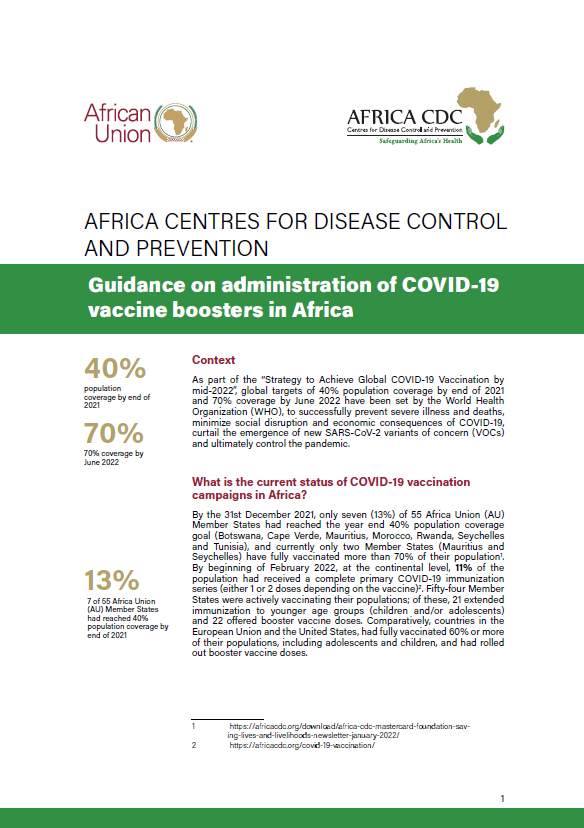Context
As part of the “Strategy to Achieve Global COVID-19 Vaccination by mid-2022”, global targets of 40% population coverage by end of 2021 and 70% coverage by June 2022 have been set by the World Health Organization (WHO), to successfully prevent severe illness and deaths, minimize social disruption and economic consequences of COVID-19, curtail the emergence of new SARS-CoV-2 variants of concern (VOCs) and ultimately control the pandemic.
What is the current status of COVID-19 vaccination campaigns in Africa?
By the 31st December 2021, only seven (13%) of 55 Africa Union (AU) Member States had reached the year end 40% population coverage goal (Botswana, Cape Verde, Mauritius, Morocco, Rwanda, Seychelles and Tunisia), and currently only two Member States (Mauritius and Seychelles) have fully vaccinated more than 70% of their population.
By beginning of February 2022, at the continental level, 11% of the population had received a complete primary COVID-19 immunization series (either 1 or 2 doses depending on the vaccine). Fifty-four Member States were actively vaccinating their populations; of these, 21 extended immunization to younger age groups (children and/or adolescents) and 22 offered booster vaccine doses. Comparatively, countries in the European Union and the United States, had fully vaccinated 60% or more of their populations, including adolescents and children, and had rolled out booster vaccine doses.
